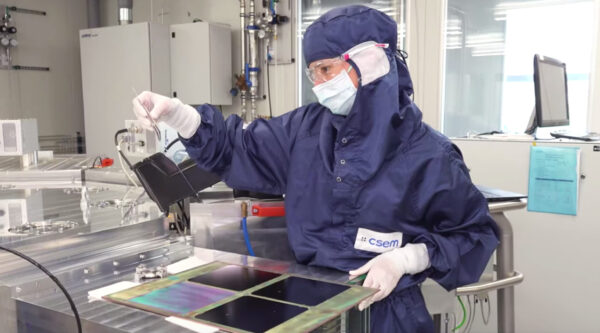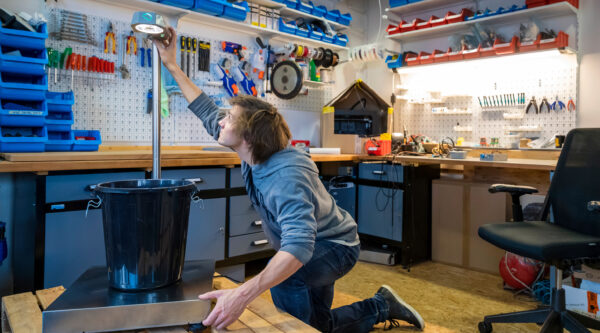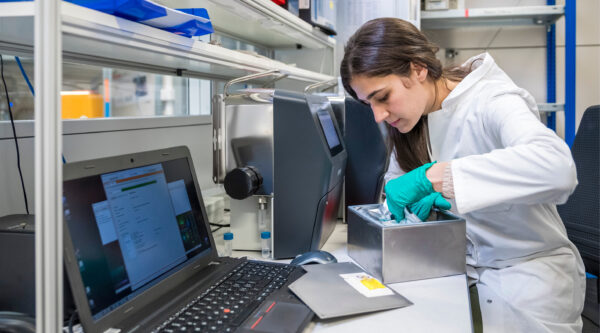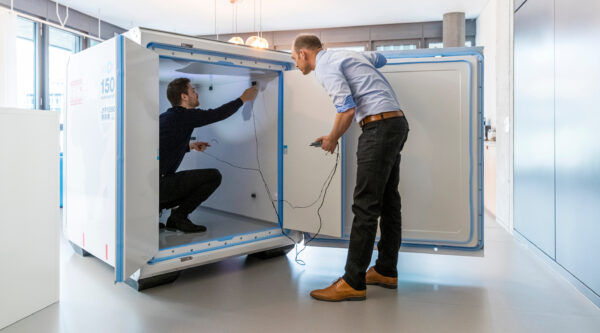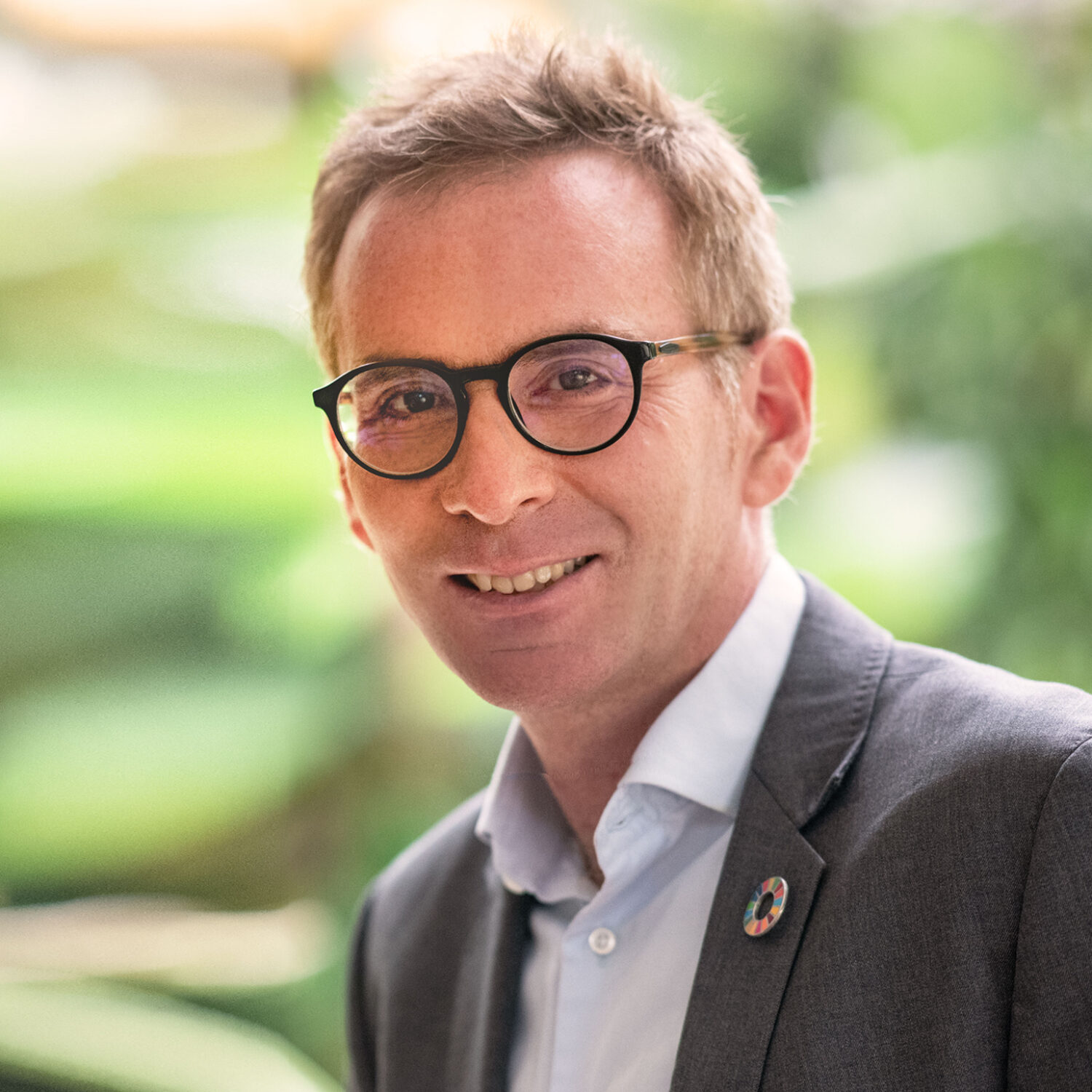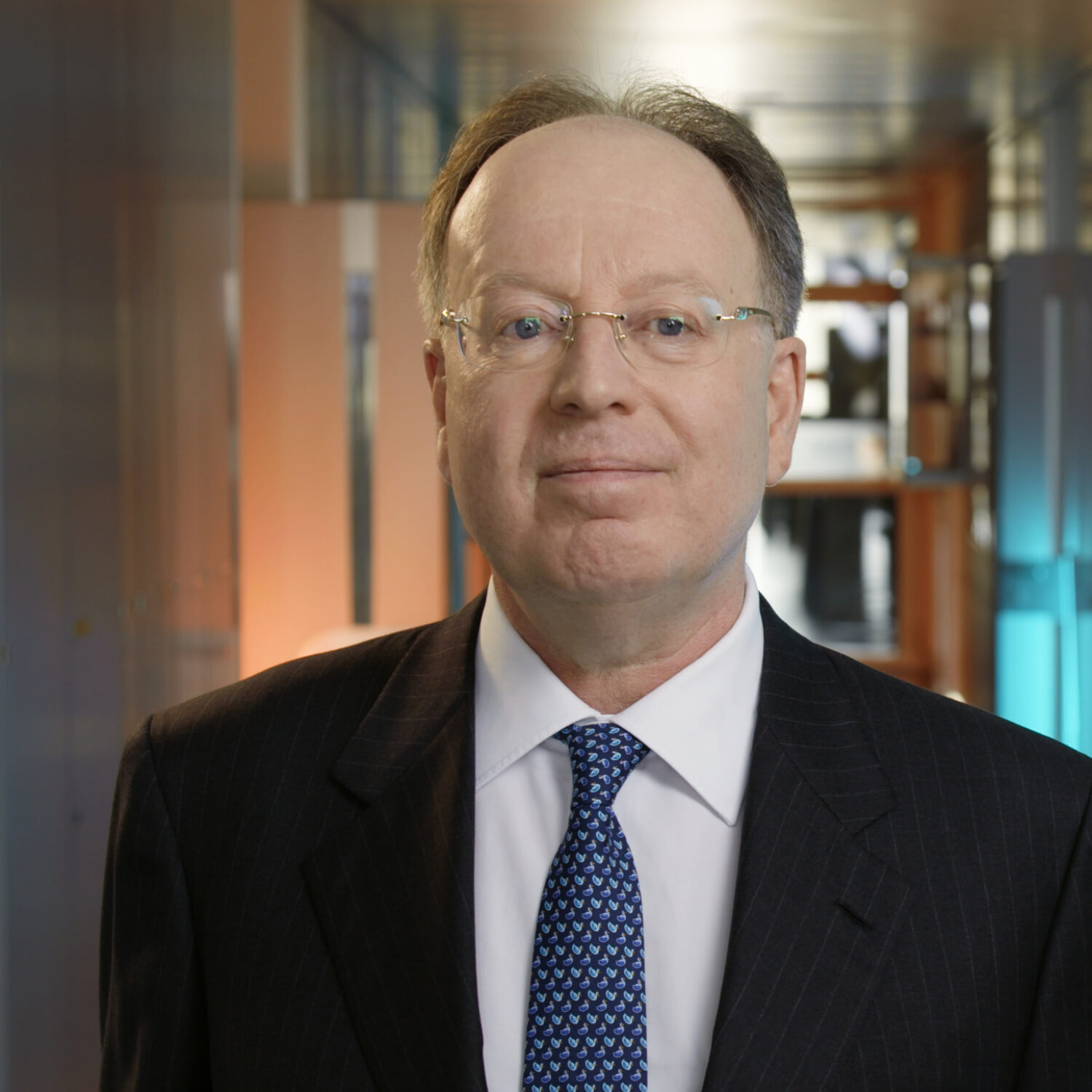Themed files
World-Leading-Innovation – Swiss made
What makes Swiss innovation world-class?
When it comes to innovation, Switzerland has been at the top of the international rankings for years: In the latest WEF study, Switzerland ranks third in the area of innovative capability and willingness – just behind the USA and Germany. And according to the Global Innovation Index, Switzerland is even the most innovative country in the world – for the tenth time in a row.
Its internationally renowned Swiss universities and research institutions – and their efficient cooperation with companies – help put it in this top position. But spending also plays a role: no other country invests as much per capita in research and development as Switzerland. However, Switzerland’s unique dual education system is also a decisive factor in its high innovative strength, says Alois Zwinggi, Managing Director of the World Economic Forum (WEF) and, since the beginning of 2020, Chairman of the Innovation Council of Innosuisse. “Take, for example, a gardener who has worked his way up to become a forestry engineer: The combination of practice and theory means he is highly trained, knows the needs of the market and can develop innovative solutions.”
No other country invests as much per capita in research and development as Switzerland.
Switzerland’s very solid banking and financial system is another deciding factor. Switzerland’s innovative capacity cannot be guaranteed by money alone. It is always a big challenge to find money for start-ups here in Switzerland.
An important factor for world-leading innovation to emerge is networking and the creation of innovation ecosystems. And for the individual companies, it is crucial that they can find employees with the right skills – and that they are prepared to keep learning new things.
Pairing technical know-how with cutting-edge research
Whether a start-up, an organisation, or a company that has been on the market for a while, Innosuisse brings Swiss companies together with excellent domestic and foreign research institutions – opening the door to world-leading innovation. “Innosuisse’s goal is to take the technical know-how of companies to the next level by bringing them together with cutting-edge research,” says Nicola Thibaudeau, Innosuisse board member and managing director of MPS Micro Precision Systems AG. “This benefits everyone: the academic partners work on practice-oriented solutions and this equips them with skills and expertise. And the company gains access to cutting-edge research – and an entire ecosystem. That’s the key to the specialisation it takes to become a global leader.”
This is also where Innosuisse’s new Flagship Initiative funding instrument comes in: Consortia of research and implementation partners should increasingly address topics and develop systemic solutions and new business models that are relevant to the future well-being of the Swiss population: for example, questions such as how supply chains or communication infrastructures can remain stable in the event of natural disasters or cyber attacks, or how society and the economy can be made less vulnerable in spite of demographic change. Or how the digital transformation – abruptly accelerated by Covid-19 – can be managed in areas such as education or tourism. “Flagships are more comprehensive than regular innovation projects in terms of content and are likely to be designed for the longer term. This close cooperation between partners from different disciplines promotes a holistic view of the solution to be developed and strengthens the systemic approach,” explains Alois Zwinggi.
To be world-class in a field, you also need to look outwards .
Providing access to the international market
But to be world-class in a field, you also need to look outwards – as well as cross-border networking: Innosuisse is an important link to international funding programmes and supports SMEs in cross-border innovation projects or in their search for international partners. Innosuisse also allows start-ups to participate in internationalisation camps. “We also support start-ups, for example with their presence at international trade fairs,” says Alois Zwinggi. “Right now, it’s difficult. But trade fairs will be in demand again after the coronavirus pandemic comes to an end.” Because personal exchange is very important – especially in the international market.
Three perspectives

The Swiss manager with a connection to the whole world
Alois Zwinggi
is Chairman of the Innovation Council of Innosuisse and, as Managing Director of the World Economic Forum WEF and former Holcim manager, has extensive experience of Swiss innovation in an international context.
What makes Switzerland a world leader in innovation?
It is first and foremost the excellent research opportunities and capacities that we have in Switzerland. This can be seen from the number of patents per capita, which puts us in a top position. We have a very good education system – that is a very important element of our innovative capacity. We also have a very solid banking and financial system.
But I still see room for improvement: Compared with other countries, there is a lot of bureaucracy in certain areas in this country, especially when you want to set up your own company. In addition, bankruptcy is still often viewed with disapproval in Switzerland. This cultural stigma, together with the complexities of entrepreneurship issues, is not conducive to innovation. On top of that, the Swiss customs system is one of the most complex in the world. This is a challenge for start-ups that have their supply chains overseas and import to Switzerland. And also makes it difficult for companies to operate in other countries.
What are the key requirements for a market to create world-leading innovation?
Firstly, innovation ecosystems need to be created – there are already very good examples of this in Switzerland around the federal universities EPFL and ETH – such as Drone Valley or Swiss Food and Nutrition Valley. Increasingly, focal hubs are also being created around the universities of applied sciences, as the example of life sciences in the northwest of Switzerland shows, or the hub for tourism issues in the canton of Graubünden. In the future, more such ecosystems will need to be established.
A healthy ecosystem requires innovative research, but also users: start-ups as well as established companies. To be successful internationally, proximity to research is one of the key elements for companies. I have seen this time and again during the years that I worked for building materials company Holcim.
And thirdly, it needs the interest and willingness of politicians, as well as the population in general, to delve into a particular topic and to be open to it.
What does a company need to become a world leader?
Talent is very important. As a company, you can’t claim to be the world leader in a particular subject and then only have generalists on board. You have to recruit the right people with the right skills. It also needs a corporate culture that encourages innovation and a willingness for lifelong learning. Another ingredient for world-leading innovation is a culture of accepting mistakes – an organisation that sweeps problems under the rug will have a hard time innovating in the long run. And finally, you need to be very close to your customers – to awaken their needs and anticipate them.

The CEO of a leading global company
Nicola Thibaudeau
has been at the helm of MPS Micro Precision Systems AG in Biel since 2003 and has increased the number of its employees from 120 to 400. She also sits on various boards of directors, including that of Innosuisse.
You are the managing director of a company that started small and is now a world leader in medical technology and in optics. How does a Swiss SME conquer the international market?
When I took over MPS, we considered which of our existing knowledge would be good to build upon and develop. We stopped working on products we did not have the right expertise for and concentrated on key areas we already knew a lot about – such as microsystems for watches. The company’s experience in this dates back to 1936, and we had suitable factories in the Jura. Besides specialisation, however, innovation is also needed. In the beginning, we brought an innovation to the market every year – with a new patent if possible. After a few years, it paid off – and the market came to us of its own accord. You can succeed just by specialising, but usually only in the very short term.
Becoming world-class is one thing, continuing to be world-class is quite another. How do you do that in the long run?
In the watch industry and even in orthopaedics, we produce unique products. There is not much competition in this sector. Sometimes we are in competition with another developer from Japan or the USA, for example in the international tenders for the telescopes we developed for Hawaii or South America.
It is essential to develop something that is different from the rest – or patented. But patents can also be counterproductive as some customers won’t buy a product for the very reason that there is patent protection – and they would then be forced to rely on a single company. If you buy a car and there is only one tyre manufacturer, you can’t use the car anymore if that company disappears from the market.
Having a product that satisfies the need is half the battle. But after that you also have to be able to sell the product. If you have a unique product, but you don’t think about how to get the product to market and get enough market share, it’s going to be hard to succeed in the long run.
To what extent does Switzerland as a business location help a company to achieve international success?
Switzerland is a very good base for us because from here we can easily reach the markets that need exactly what we can deliver – precision and the ability to combine different innovations in a single system. As a Swiss company, you are given a lot of confidence right from the start that you will achieve your goals – be it in the development of a medical product or an optical system. And in Switzerland we can fall back on automated production. In a low-wage country, production is manual – with a lot of people involved. This requires a lot of resources and does not always result in a sustainable and qualitatively reliable product.
The problem is, however, that Switzerland itself is not a large market. This is in contrast to, say, the USA, where if you develop a product for hospitals there, you can test your product widely before exporting it without much effort. We, on the other hand, are developing a medical device and have received approval from Swissmedic. However, in order to sell the product abroad, we need the European CE marking. As Switzerland is not a member of the EU, there are a number of hurdles to clear to get there – combined with high costs, loss of time and a higher risk that we will not receive the approval we need at the end of it.

The start-up founder who enables innovation in emerging markets from Switzerland
Alisée de Tonnac
is co-managing director of the Swiss company Seedstars, which aims to transform lives in emerging markets through technology and entrepreneurship.
In which markets do you see the greatest potential for globally successful innovations?
The starting position for a company in an emerging market is very different from that in industrialised countries such as Switzerland. In emerging markets, start-ups mainly operate in the low-tech sector – there are no technical universities there such as the ETH or EPFL. The innovative business ideas mostly revolve around the question of how to reach the largest possible number of consumers on a small budget. Usually it’s about basic needs that need to be met. Start-ups solve local problems and take advantage of opportunities to leapfrog individual development steps that industrialised countries have already taken.
For example, the consumer goods industry in many countries has changed little in recent decades, and the supply chain still goes through many stages: importers, traders, wholesalers, retailers and so on. E-commerce is mostly not yet an option in emerging markets, but digitisation can increasingly cut out the middle men. This is made possible by the growing availability of smartphones, most of which operate on a prepaid system in such countries. In Nigeria, for example, people watch movies with a prepaid card. In order to sell such services – such as clothes, gas cookers or agricultural goods – access to credit and payment solutions is required. Sub-Saharan Africa has become the world’s leading provider of mobile money transfer services, and access to financial services has become widespread. African countries also play a major role in agricultural technology worldwide.
What does a company in an emerging market need to become world-leading?
I believe that, in order to grow successfully, the challenges are the same for all entrepreneurs worldwide: You have to flex your “money muscle” quickly to attract great talent, manage the many expenses and overcome other obstacles faced when entering the market.
In contrast to industrialised countries, in emerging markets setting up a company is the only way for most people to make a career. And, of course, the resources are not the same. In addition to building up their company, many start-up founders first have to establish services in their environment that are already taken for granted here in Europe. An e-commerce business in this country can already operate on very efficient infrastructure, as we have secure payment methods, efficient transport routes and secure warehouses. In many regions of the world, companies must first establish the supply chain in order to sell at all. That’s what happened to the winner of our 2018 Seedstars World Competition. Ghana-based company Agrocenta actually wanted to become a marketplace for smallholder farmers and international buyers. However, Francis, the company’s founder, soon realised that he first had to grant loans to local farmers so that they could increase their production or invest in warehouses – to improve the quality and quantity of their products. Agrocenta now runs credit businesses and owns large department stores.
How do you support companies in Asia, Africa, Eastern Europe and South America from Switzerland?
We have established training programmes around the world as well as a funding model to help entrepreneurs build upon and grow their businesses. Through our network of experts, mentors and investors, we can adapt this support to the regions, business areas or business maturity of the individual start-ups. We are active in all relevant key areas of a traditional entrepreneurial ecosystem (culture, financing, public sector, markets, human capital and support), but we put the focus on human capital. In our training centres, (prospective) entrepreneurs can acquire skills and knowledge and equip themselves for the challenges of tomorrow. That’s because the lack of talent is still one of the main problems in these markets. To date, we have trained over 30,000 entrepreneurs and supported nearly 4,000 start-ups in 95 ecosystems.



